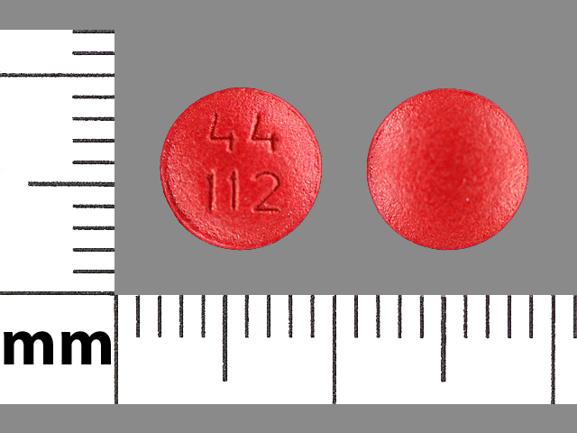Pseudoephedrine Dosage
Medically reviewed by Drugs.com. Last updated on Aug 10, 2023.
Applies to the following strengths: 7.5 mg/0.8 mL; 30 mg; 120 mg; 15 mg/5 mL; 60 mg; 15 mg; 240 mg; 30 mg/5 mL; 50 mg/5 mL; 22.5 mg/5 mL
Usual Adult Dose for:
Usual Pediatric Dose for:
Additional dosage information:
Usual Adult Dose for Nasal Congestion
Immediate release: 30 to 60 mg orally every 4 to 6 hours as needed
12-hour extended- release: 120 mg orally every 12 hours as needed
24-hour extended-release: 240 mg orally every 24 hours as needed
Maximum dose: 240 mg per day
Comment: Recommended doses should not be exceeded.
Uses:
- Temporarily relieves nasal congestion due to the common cold, hay fever, or other upper respiratory allergies.
- Temporarily relieve sinus congestion and pressure.
Usual Pediatric Dose for Nasal Congestion
4 to 5 years:
Immediate release: 15 mg orally every 4 to 6 hours as needed
Maximum dose: 60 mg in 24 hours
6 to 12 years:
Immediate release: 30 mg orally every 4 to 6 hours as needed
Maximum dose: 120 mg in 24 hours
12 years or older:
Immediate release: 30 to 60 mg orally every 4 to 6 hours as needed
12-hour extended- release: 120 mg orally every 12 hours as needed
24-hour extended-release: 240 mg orally every 24 hours as needed
Maximum dose: 240 mg in 24 hours
Comments:
- Recommended doses should not be exceeded.
- Giving more than 1 cough and cold medicine to a child could result in overdose; there are many products that have similar names and it is critical to identify the active ingredients in the product to ensure the correct dosage is being used.
Uses:
- Temporarily relieves nasal congestion due to the common cold, hay fever, or other upper respiratory allergies.
- Temporarily relieve sinus congestion and pressure.
Renal Dose Adjustments
Severe renal impairment: Use caution, especially in patients with concurrent cardiovascular disease.
Liver Dose Adjustments
Severe hepatic impairment: Use caution, especially in patients with concurrent cardiovascular disease.
Precautions
On March 9, 2006, The Combat Methamphetamine Epidemic Act of 2005 was enacted which requires sellers of this drug ensure that: employees have been trained; records of the training are being maintained; sales limits are being enforced; products are being stored appropriately; and a written or electronic logbook is being maintained. The law requires that retailers place pseudoephedrine products where customers do not have direct access to such products before a sale is made. The FDA defines pseudoephedrine as an OTC drug in accordance with the monograph and FDA regulations.
The US FDA strongly recommends that over- the- counter (OTC) cough and cold products not be used in children younger than 2 years of age because serious and potentially life-threatening side effects can occur including death, convulsions, rapid heart rates, and decreased levels of consciousness. OTC cough and cold products include decongestants, expectorants, antihistamines, and antitussives.
Safety and efficacy have not been established in patients younger than 2 years.
Consult WARNINGS section for additional precautions.
Dialysis
Data not available
Other Comments
Administration advice:
Oral Liquid:
- Use only with enclosed measuring device or measuring devices specifically designed for measuring drugs.
Extended-release tablets:
- Swallow whole; do not divide crush, chew, or dissolve
Storage requirements:
- Protect from light
General:
- Over the counter cough and cold products can be harmful if more than the recommended amount is consumed; this may happen if more than 1 product containing the same active ingredient is used.
Patient advice:
- Patients should be instructed to pay close attention to drugs labels, particularly to the active ingredients section to ensure they are not receiving duplicate therapy.
- Adult cough and cold products should not be used for children; appropriate measuring devices should be used with liquid products.
- Patients should check with their health care provider if they are receiving concomitant medications.
- Patients should understand that over the counter cough and cold medications do not cure or shorten the duration of the common cold, these products are for the management of symptoms.
Frequently asked questions
More about pseudoephedrine
- Check interactions
- Compare alternatives
- Pricing & coupons
- Reviews (90)
- Drug images
- Side effects
- Patient tips
- During pregnancy
- Support group
- Drug class: decongestants
- Breastfeeding
- En español
Patient resources
- Pseudoephedrine drug information
- Pseudoephedrine Capsules and Tablets
- Pseudoephedrine Extended-Release Tablets (12 Hour)
- Pseudoephedrine Extended-Release Tablets (24 Hour)
- Pseudoephedrine Liquid
Other brands
Sudafed Congestion, Sudafed 12-Hour, SudoGest, Sudafed 24-Hour, ... +14 more
Professional resources
Other brands
Related treatment guides
Further information
Always consult your healthcare provider to ensure the information displayed on this page applies to your personal circumstances.


